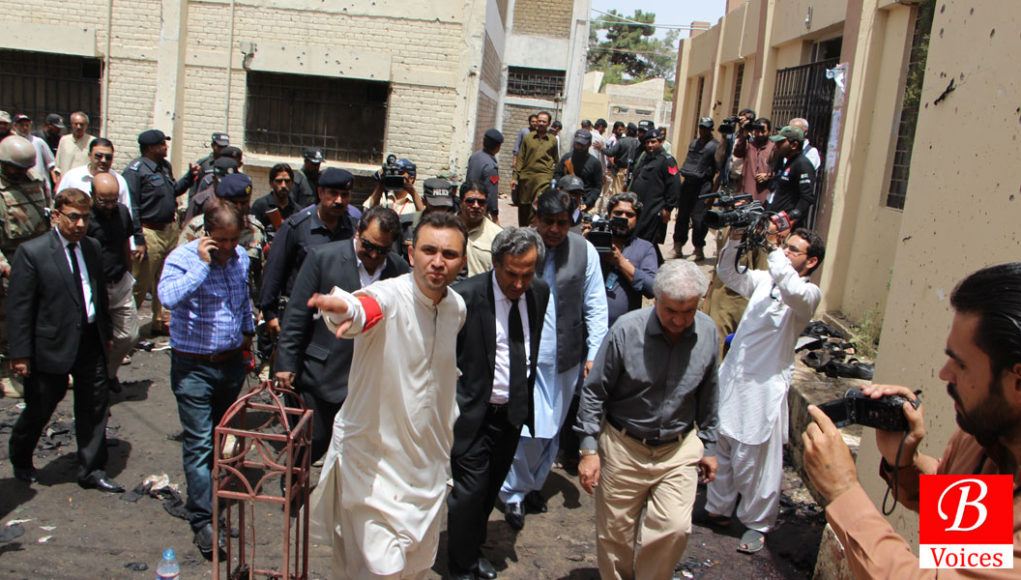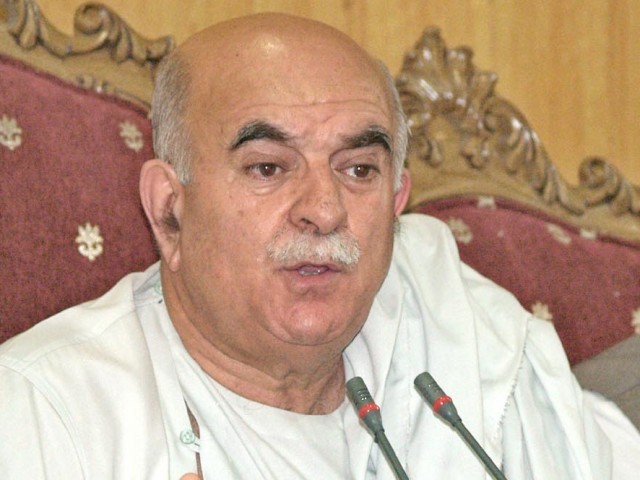Dial T for Traitor
On August 22, two weeks after the Quetta bombing, human rights activist Asma Jahangir proposed that a new political party of ‘traitors’ be formed in Pakistan. This in view of the fact that anyone who did not echo or concur with the state’s ‘official’ narrative was being branded a traitor.
Jahangir’s remarks were made against the backdrop of the T-label being stamped on Pakhtunkhwa Milli Awami Party (PkMAP) Chairman, Mehmood Khan Achakzai, over his comments following the Quetta attack. Achakzai had demanded the accountability of intelligence agencies for its security failures, which led to the bombing that killed over 70 people in Balochistan’s capital.
Juxtapose this with the province’s Chief Minister, Sanaullah Zehri’s allegations of the Indian Intelligence Agency RAW’s involvement in the Quetta attack barely an hour after the bombing and one gets a fair idea of the twisted Traitor-Patriot spectrum of nationalism in our neck of the woods. Any self-critical individual looking inwards for solutions is a ‘traitor,’ while the finger-pointing jingoist is an archetypal ‘patriot.’
The fact that the China-Pakistan Economic Corridor (CPEC) was peddled, and overwhelmingly accepted as the victim in a blatant attack on the province’s law practitioners, not only adds us another angle to the aforementioned spectrum, but the loci of the events also generates an unpleasant sense of déjà vu.
Balochistan is no stranger to allegations of traitorship. From Nauroz Khan, who led the struggle against the One-Unit Policy in the 1950s, to the once defence and chief minister Akbar Bugti, who stood up for Pakistan’s largest province’s politico-economic share in the 2000s — all Baloch nationalists have been dubbed ‘traitors,’ unless proven otherwise. It’s little wonder then that those that were killed in the Quetta bombing had to posthumously prove their patriotism by giving up their individuality to establish CPEC as the intended target. Similar sacrifices have been rendered by countless Baloch through human subordination to their province’s geostrategic assets, be it Sui Gas, or the Gwadar Port.
Of course, Pashtun nationalist parties in particular, have been the focus of the attention of those “awarding” the T-labels. The National Awami Party (NAP), that had won a majority in both the Balochistan and the then NWFP assemblies following the 1970 elections, was banned along with its leader Wali Khan for their ‘anti-Pakistan conspiracies.’ This was intended to pave the way for the fourth military operation in Balochistan in the ’70s, in which nearly up to 9,000 militants and civilians were killed.
Had the Pashtun nationalist PkMAP currently enjoyed a majority in the Balochistan Assembly, the allegations against Mehmood Khan Achakzai might have been fast-tracked and the provincial government toppled. But thanks to the Murree Accord, the Pakistan Muslim League-Nawaz (PML-N) has their candidate (Sanaullah Zehri) as the Chief Minister for the second half of the five-year tenure — the first half had BNP’s Malik Baloch as Chief Minister — with the ruling party effectively calling shots from the centre.
With Pakistan being created as a security state on ideological thin ice, any nationalist movement that has not defined itself along religious lines has been dubbed ‘anti-Pakistan’ since Partition. Whether it was Huseyn Shaheed Suhrawardy in the former East Pakistan, Abdul Ghaffar Khan (fondly known as Bacha Khan) in the then NWFP or GM Syed in Sindh, all were branded traitors simply because they led struggles to protect their respective communities against state alienation.
While the idea of a security state fearing disintegration might be used to qualify the scepticism in the immediate aftermath of 1947 or 1971, the fact that ‘traitors’ are still being called out over differing opinions, highlights that paranoia has become Pakistan’s default setting and silencing dissenting voices the national ethos.
Another factor which explains this culture of establishing monolithic narratives in Pakistani politics is the tumultuous history of civil-military relations in the country. Politicians have traditionally been kept at the proverbial gunpoint, and asked to toe the establishment’s line. Failure to do so is deemed treasonous, resulting in unwarranted steps being taken against them by both military and civilian leaders alike. What further strengthens this iron fist is defining patriotism through perceived achievements in warfare and viewing the army as the custodian of nationalism — therefore, ensuring that any views or questions against the military are deemed synonymous with attacks on Pakistan.
What keeps this monolithic superstructure of paranoid autocracy together is the glue of conspiracy theories that complete the jigsaw puzzle through cherry-picked pieces. Conspiracy theories that extrapolate partial truths, or fabricate facts to fit a pattern, are an inherent feature of a state practicing some form of autocracy in governance. Conspiracism propagates the belief in external interference in shaping up events contrary to the interests of the group that the conspiracy theorists self-identify as — hence, necessitating the existence of ‘agents’ that aid the foreign forces’ malicious designs.
However, the belief that only a global plot abetted by insiders can undo one’s state, nation or community, is also a symptom of unflinching supremacism.
In Pakistan, religio-nationalist supremacism is the bedrock for most conspiracy theories, more often than not branding communities or individuals manifesting any identity other than Pakistani or Muslim as ‘anti-state’. Therefore, any individual highlighting the glaring chinks in the Islamo-nationalist grandeur — whether it be human rights abuses, security lapses, foreign policy faux pas or Pakistan’s poor standing among the global states — is easily identifiable as a ‘traitor.’
This inertia against self-reflection and immunity from ownership of the state’s problems are fed through the educational curricula and media alike. And when elected parliamentarians are being called traitors for asking a department of the state whether they’re doing their job properly or not, it is evident that divergent opinions are being blatantly suppressed in the garb of ‘national interest.’
Democracy, without the accommodation of contrasting narratives, is a façade. And, sooner or later, Pakistan would have to progress from counting the number of successive completed tenures of elected governments to measuring the actual indicators of democracy.
Asma Jahangir’s remarks were followed by a satirical column in Khabaristan Times, titled ‘Awami Traitors Party, which highlighted how the party will serve as the ‘voice of all traitors, irrespective of their religion, sect, sex, colour, caste, creed, class and moral values.’ An actual party for the ‘traitors’ in Pakistan would indeed be very inclusive since more often than not those dubbed ‘renegades’ have the tendency of being humanists as well.
Kunwar Khuldune Shahid is a journalist and writer based in Lahore.





